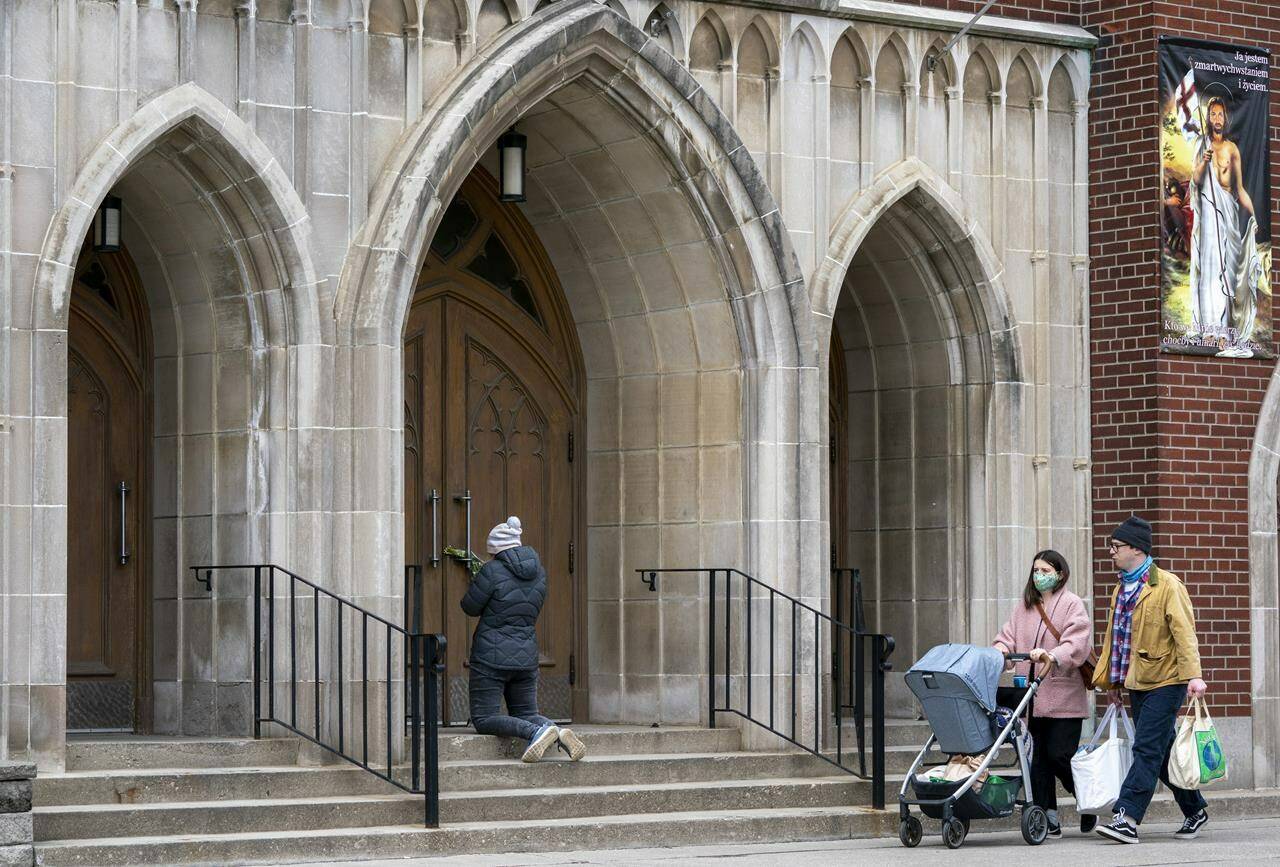On Christmas Eve 2020, Rev. John Lemire got ready for work: two funerals and three masses.
The Catholic priest in Timmins, Ont., felt “somewhat exhausted” after presiding at back-to-back funeral services but had to quickly switch to the joyful mode of celebrating Christmas. Never far from his mind were the concerns of his parishioners as another COVID-19 lockdown loomed.
The fatigue Lemire describes is not uncommon among the country’s spiritual leaders, who some see as the forgotten front-line workers. Priests, rabbis and imams say they are nearing the breaking point as the strains of their job have been exacerbated by the pandemic.
Lemire, who ministers at the Sacred Heart of Jesus and St. Anthony of Padua Cathedral parishes in Timmins, does not consider himself to have suffered from burnout, but he says others have.
“I think burnout implies that they are no longer able to function and we do see that occasionally, both before the pandemic and after the pandemic,” he said in a recent interview. He attributes the problem to a number of factors, including what he sees as a push in contemporary Canadian culture to keep God out of everyday life and discredit voices of the religious, as well as an increased workload for a shrinking clergy.
“When nobody else seems to be doing something, somehow society turns to the church,” Lemire said. “‘Oh, you should be working on homelessness, you should be working on food banks, you should be working on palliative care, you should be doing this and that.”
Joel Thiessen, a sociology professor at Ambrose University, a private Christian institution in Calgary, said that while data is lacking in Canada, he has heard anecdotes of burnout, stress and mental health issues among spiritual leaders. The problems have only been amplified by the pandemic, he said.
“It’s probably always come with the territory, like other social service roles or front-line roles,” Thiessen said. People assume that spiritual leaders are “superhuman almost” who give up time with their families to tend to their communities, he said.
“They respond to emergencies, like going to hospitals and bedsides of those who are dying and sick, and those can take a toll on clergy.”
Michal Shekel, executive director of the Toronto Board of Rabbis, said spiritual leaders are not confronted with life-and-death medical emergencies like front-line workers. But she and her colleagues have noticed over the course of the pandemic that people have more spiritual angst.
“The front-line health workers are dealing with a person’s body. We’re dealing with a person’s soul,” she said in an interview. “We’re dealing with their big why questions. Is that less important?”
Hassan Guillet, a Montreal imam, noted the lack of steady income that resulted from the COVID-19 lockdowns. “We had long periods of times where mosques were closed. Imams being assigned to mosques had no salary from these mosques,” he said in an interview.
“Some had to go on unemployment, others saw their jobs cut and others saw their salary cut. They had to survive and be able to support their families. And it was very tough.”
Muslims in Canada are a nascent society and in general don’t have deep roots or wealth, Guillet noted. That meant that a number of worshippers lost jobs during the pandemic and were less able to donate to mosques.
As funds dried up, some imams got help but others took outside jobs and had less time to give to the mosque, he said. “There was fatigue. Imams were exhausted.”
Habeeb Alli, a chaplain in the federal prison system and an imam who runs a food bank in Toronto, said balancing the added strain COVID-19 placed at the meal centre with his duties at the correctional facility left him stressed. He felt anxiety and uncertainty about the future, he said.
After money from his Canada Emergency Response Benefit ran out, he said he applied for a job as a multi-faith chaplain at a long-term care centre, which helped provide financial security.
“Fortunately for me, I was working in that field, so I was able to get a job in that same field,” he said.
Thiessen said most spiritual leaders see their work as a calling and are not always trained for the heavy toll it can take. “I would probably compare them to those who work in social services and front-line workers and such,” he said, adding there is a distinction.
“You are leading a group of people in terms of their spiritual faith and progression and so forth, but you can’t actually confide in anyone really within that community. And that’s kind of like a therapist. They can’t confide in their patients.”
Lemire said he made 200 phone calls during each of the four major lockdowns in Ontario to connect with parishioners. Some lasted a few minutes but others went on for about an hour because people needed to talk.
“That was a new dimension of ministry,” he said. “Doing ministry by telephone, as opposed to the face to face. I think that those were some of the experiences of fatigue in the pandemic for us.”
Shekel said she has seen fatigue, exhaustion and burnout “in various ways and at various levels” among rabbis, which was exacerbated by the pandemic.
“One of the hardest ways it hits is, how can I be a spiritual role model for my community if I’m having trouble finding that spiritual core within me because of burnout?” she said.
“It becomes a flickering candle instead of a very bright shining light.”
Hina Alam, The Canadian Press

